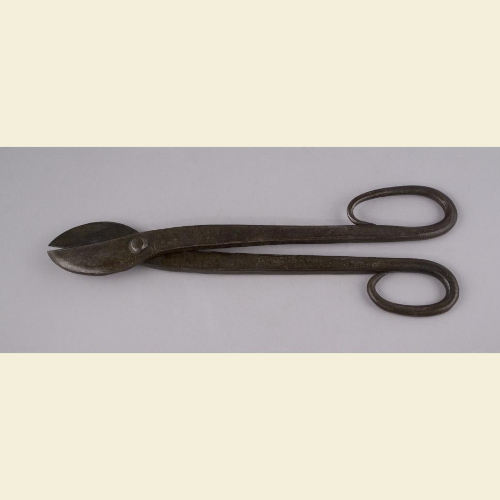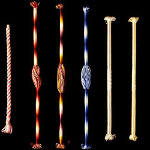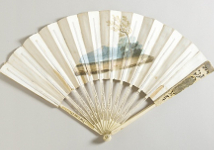Artifact: Hand Shears

Materials: Iron/Steel
Dimensions: OL: 14" Blades: 3"
Date: 1750-1820
Origin: England or America
Collection: Image Courtesy of The Colonial Williamsburg Foundation
License: All rights reserved
Ledger Entry: Shears

Department: Tool
Customer: John Ashford
Ledger Page: 91
Imported From: While tools could be produced by local blacksmiths, the availability of raw materials and skilled labor limited the large-scale production of tools in the American colonies. Specialized tools were typically imported from British production centers in London, Birmingham, and Sheffield.
Product Description
Shears are tools used for cutting. The primary component of shears was two blades, but depending on the use, their construction could be quite different. Metal and gardening shears were typically formed by two blades held together by a pin at the pivot point. Wool shears were formed by a single piece of metal looped around at the back.
Citation: James M. Gaynor and Nancy L. Hagedorn, Tools: Working Wood in Eighteenth-Century America (Williamsburg, VA: The Colonial Williamsburg Foundation, 1993).; Hood, Adrienne D. The Weaver's Craft : Cloth, Commerce, and Industry in Early Pennsylvania. (Philadelphia :University of Pennsylvania Press, 2003).
Historical Price: 12 pence; Modern USD: $11.2
Product Variations
The databases record six purchases of shears. Three are labeled as sheep's shears while two are labeled as tailor's shears. Their prices range from twelve pence to two shillings twelve pence. All three pairs of sheep's sheers sold for over one shilling while the tailor's shears and unspecified shears were all under sixteen pence.






